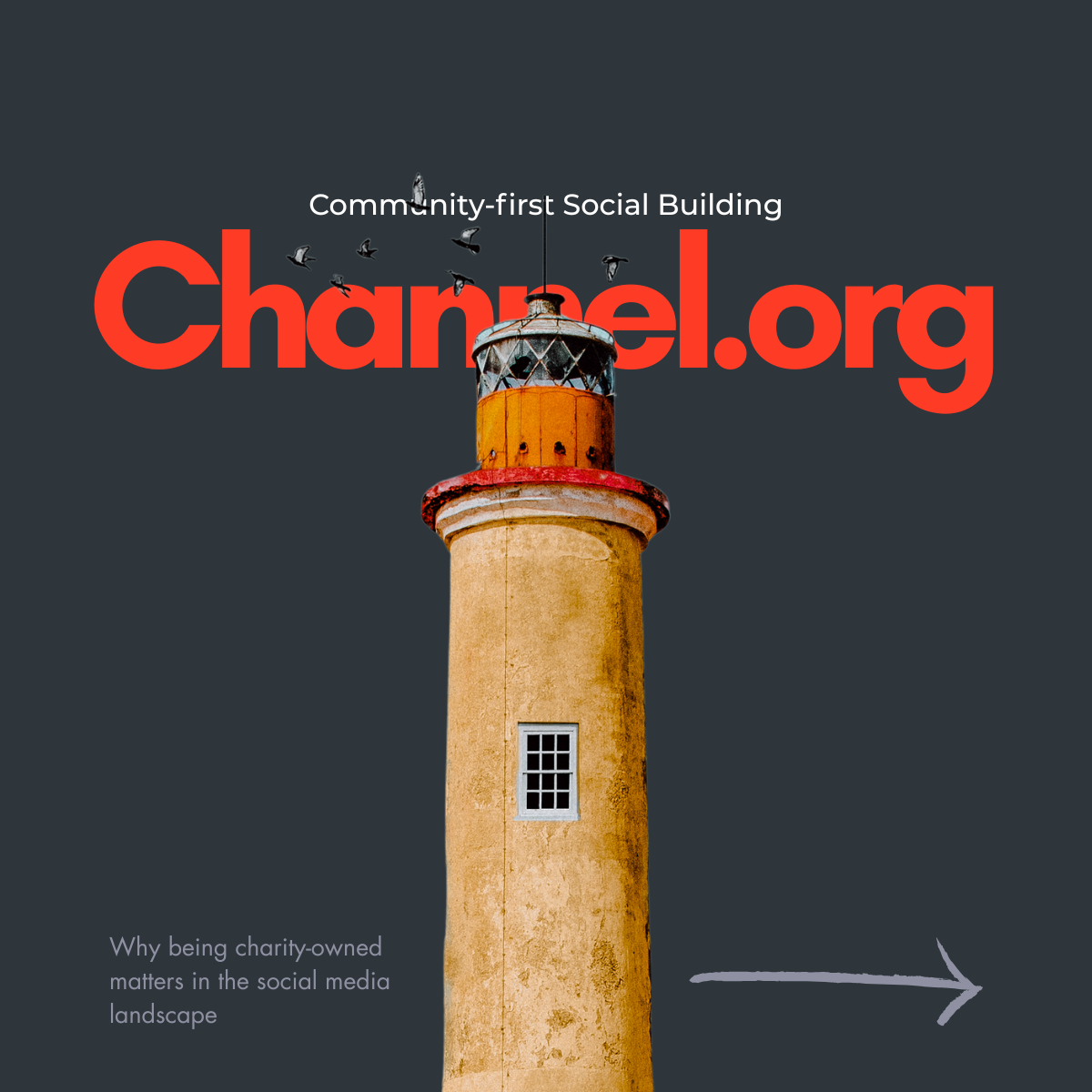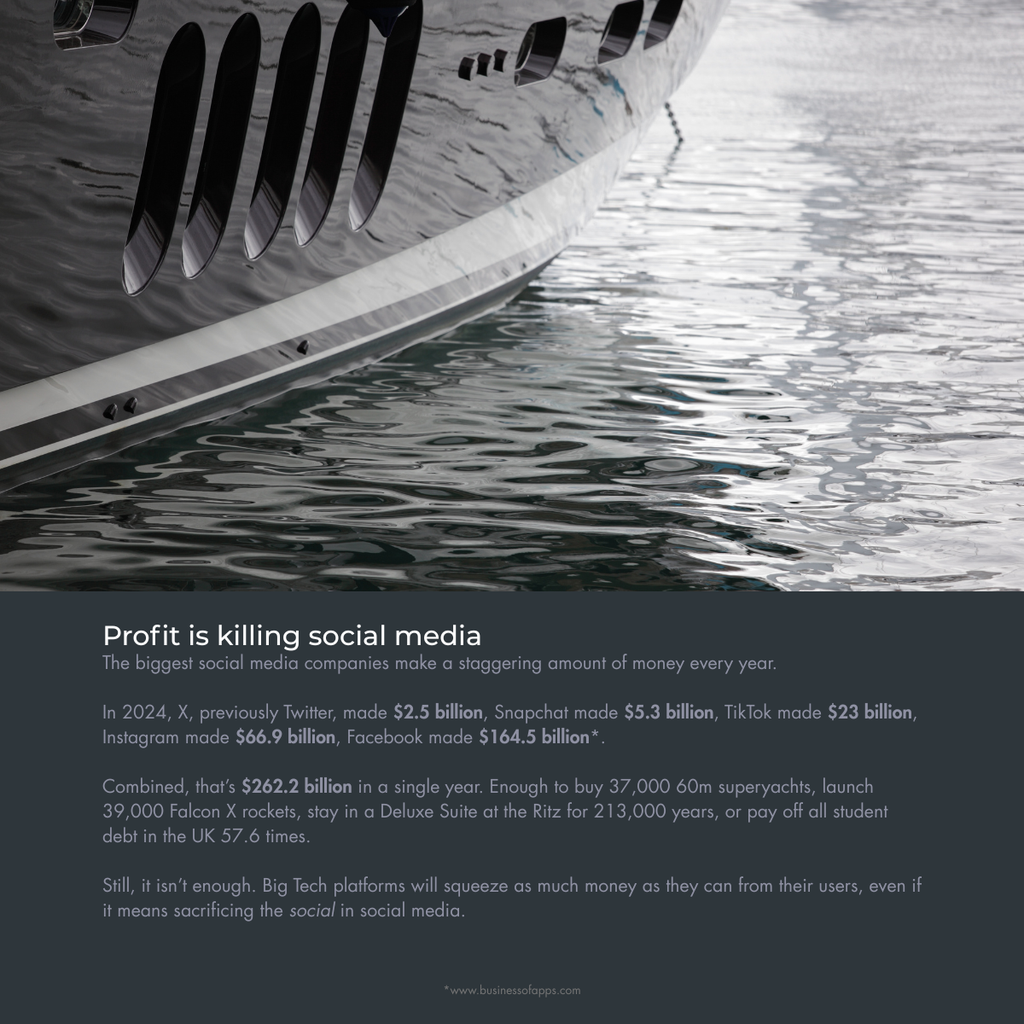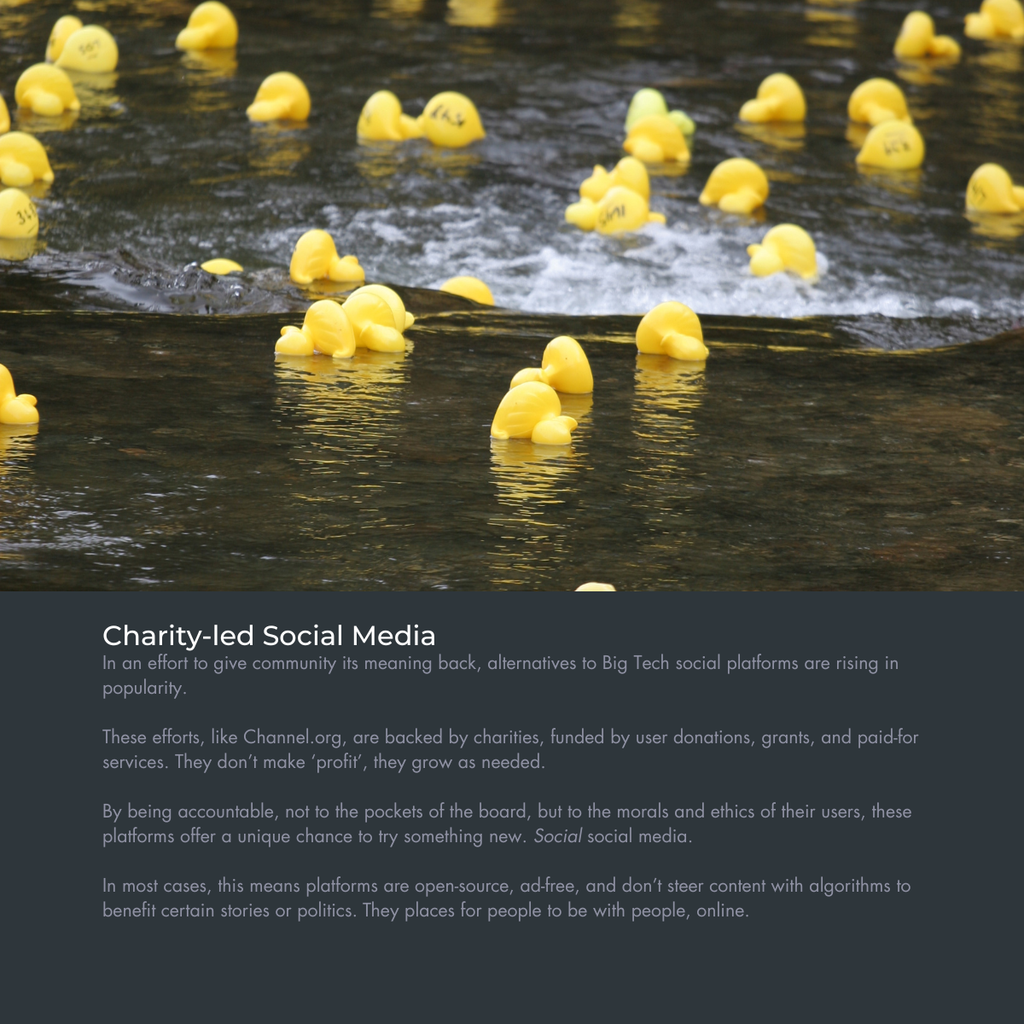Channel.org offers organisations an opportunity to stop renting from billionaires and start hosting their online community.
We believe that, because of our charity status, we can help organisations escape the traps of for-profit social media and understand the benefits of the Open Social Web. Joining in the way that works best for them, through our services or otherwise.
3 media


